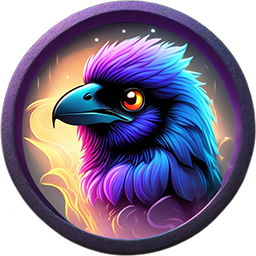Ollama Inference
Tips
Ollama is a simple and easy-to-use open-source local large language model running framework that supports one-click deployment and running of various open-source models on personal computers, featuring simple configuration and low resource consumption.
With the efforts of RWKV community member @MollySophia, Ollama now supports the RWKV-7 and RWKV-6 model.
This chapter introduces how to use the RWKV model for inference in Ollama.
Download and Installation of Ollama
You can download the Ollama installer from the Ollama official website.
After downloading, double-click the exe file to install. After installation, Ollama will automatically start, and you can see the Ollama icon in the system taskbar.
![]()
Running RWKV Models Provided by Ollama
Tips
Ollama's RWKV repository provides RWKV7-G1 (recommended) and RWKV7-World models.
Caution
The RWKV-6 World model is outdated and no longer recommended.
Run the ollama run mollysama/rwkv-7-g1:2.9b command in the terminal, and Ollama will automatically download and run the RWKV7-G1 2.9B model. You can then have a conversation with the RWKV model in the terminal.

Tips
By default, Ollama's RWKV7-G1 model has thinking mode enabled, which can be flexibly toggled on and off with the /set nothink and /set think commands.
All available Ollama/RWKV7-G1 models:
mollysama/rwkv-7-g1:2.9b: Quantization:Q8_0mollysama/rwkv-7-g1:2.9b-q6_k: Quantization:Q6_Kmollysama/rwkv-7-g1:2.9b-thinkdisabled: Thinking mode disabled, Quantization:Q8_0mollysama/rwkv-7-g1:2.9b-thinkdisabled-q6_k: Thinking mode disabled, Quantization:Q6_Kmollysama/rwkv-7-g1:1.5b: Quantization:Q8_0mollysama/rwkv-7-g1:1.5b-q6_k: Quantization:Q6_Kmollysama/rwkv-7-g1:1.5b-thinkdisabled: Thinking mode disabled, Quantization:Q8_0mollysama/rwkv-7-g1:1.5b-thinkdisabled-q6_k: Thinking mode disabled, Quantization:Q6_K
If you have previously downloaded the mollysama/rwkv-7-g1:2.9b model, please run the ollama pull mollysama/rwkv-7-g1:2.9b command to pull the latest changes.
The RWKV7-G1 model is a comprehensive upgrade to the RWKV-7-World model. It is recommended to use the RWKV7-G1 model.
Run the ollama run mollysama/rwkv-7-world:2.9b command in the terminal, and Ollama will automatically download and run the RWKV7-World 2.9B model. You can have a conversation with the RWKV model in the terminal, as shown in the figure below:

All available Ollama/RWKV-7 World models:
mollysama/rwkv-7-world:1.5b: Quantization:Q4_K_Mmollysama/rwkv-7-world:2.9b: Quantization:Q4_K_M
Tips
If you have previously downloaded the mollysama/rwkv-7-world:2.9b model, please run the ollama pull mollysama/rwkv-7-world:2.9b command to pull the latest changes.
Running a Custom RWKV Model
To run a custom RWKV model, you need a model file in .gguf format and a Modelfile for configuring the chat template and decoding parameters. Then, use the ollama create command to create a custom Ollama model.
After creation is complete, you can use the ollama run command to run the custom model.
1. Download the RWKV gguf Model
You can download RWKV models in gguf format from the RWKV GGUF Collection.
Warning
RWKV gguf models have various quantized versions. It is recommended to use FP16 and Q8_0 quantization levels. Lower quantization levels (like Q5_K_M, Q4_K_M, etc.) may degrade the model's responses.
Tips
Fine-tuned an RWKV-7 model yourself and want to convert it from pth to gguf format? Check the llama.cpp docs - Convert pth model to gguf.
2. Create the Model's Modelfile
In the folder where the RWKV gguf model file is stored, create a text file named Modelfile, with no file extension.
Open the Modelfile with a text editor like "Notepad", and then create different Modelfile content based on whether the model supports thinking mode.
For RWKV G1 series models that support thinking, please write the following content into the Modelfile:
FROM rwkv7-g1-2.9b-20250519-ctx4096-Q8_0.gguf
TEMPLATE """{{- if .System }}System: {{ .System }}{{ end }}
{{- range $i, $_ := .Messages }}
{{- $last := eq (len (slice $.Messages $i)) 1}}
{{- if eq .Role "user" }}
{{- if eq $i 0}}User: {{ .Content }}{{- else }}
User: {{ .Content }}{{- end }}
{{- else if eq .Role "assistant" }}
Assistant: <{{- if and $last .Thinking -}}think>{{ .Thinking }}</think>{{- else }}think>
</think>{{- end }}{{ .Content }}{{- end }}
{{- if and $last (ne .Role "assistant") }}
Assistant:{{- if $.IsThinkSet }} <{{- if not $.Think }}think>
</think>{{- end }}{{- end }}{{- end }}{{- end }}"""
PARAMETER stop """
"""
PARAMETER stop """
User"""
PARAMETER stop "User"
PARAMETER stop "Assistant"
PARAMETER temperature 1
PARAMETER top_p 0.5
PARAMETER repeat_penalty 1.2
For RWKV-World and other models that do not support thinking, please write the following content into the Modelfile:
FROM rwkv7-g1-1.5b-20250429-ctx4096-Q8_0.gguf
TEMPLATE """{{- if .System }}System: {{ .System }}{{ end }}
{{- range $i, $_ := .Messages }}
{{- $last := eq (len (slice $.Messages $i)) 1}}
{{- if eq .Role "user" }}
{{- if eq $i 0}}User: {{ .Content }}{{- else }}
User: {{ .Content }}{{- end }}
{{- else if eq .Role "assistant" }}
Assistant:{{ .Content }}{{- end }}
{{- if and $last (ne .Role "assistant") }}
Assistant:{{- end -}}{{- end }}"""
PARAMETER stop """
"""
PARAMETER stop """
User"""
PARAMETER temperature 1
PARAMETER top_p 0.5
PARAMETER repeat_penalty 1.2
Please change rwkv-xxx.gguf after FROM in the first line to the filename of your local RWKV model.
Decoding parameters like PARAMETER temperature 1, PARAMETER top_p 0.5, etc., can be adjusted as needed.
3. Create and Run the Custom RWKV Model
In the directory where the RWKV gguf model and Modelfile are located, open a terminal and execute the ollama create command:
ollama create rwkv-xxx -f Modelfile
Tips
Change the model name after ollama create to your local RWKV model's name (it should be consistent with the model name in the Modelfile), but without the .gguf suffix.
After creation is complete, use the ollama run command to run the model directly:
ollama run rwkv-xxx
Once it runs successfully, you can start a chat conversation with the model.
Stopping Ollama
Please use the ollama stop mollysama/rwkv-7-g1:2.9b command to stop the current model instance, which will reset the conversation context.
Otherwise, Ollama will continuously retain the current session's context (history messages) as a reference for subsequent conversations.
Ollama GUIs and Desktop Applications
Ollama itself does not provide a GUI or WebUI service, but its community offers third-party GUIs and desktop applications.
You can view all third-party Ollama tools in Ollama's GitHub documentation.
